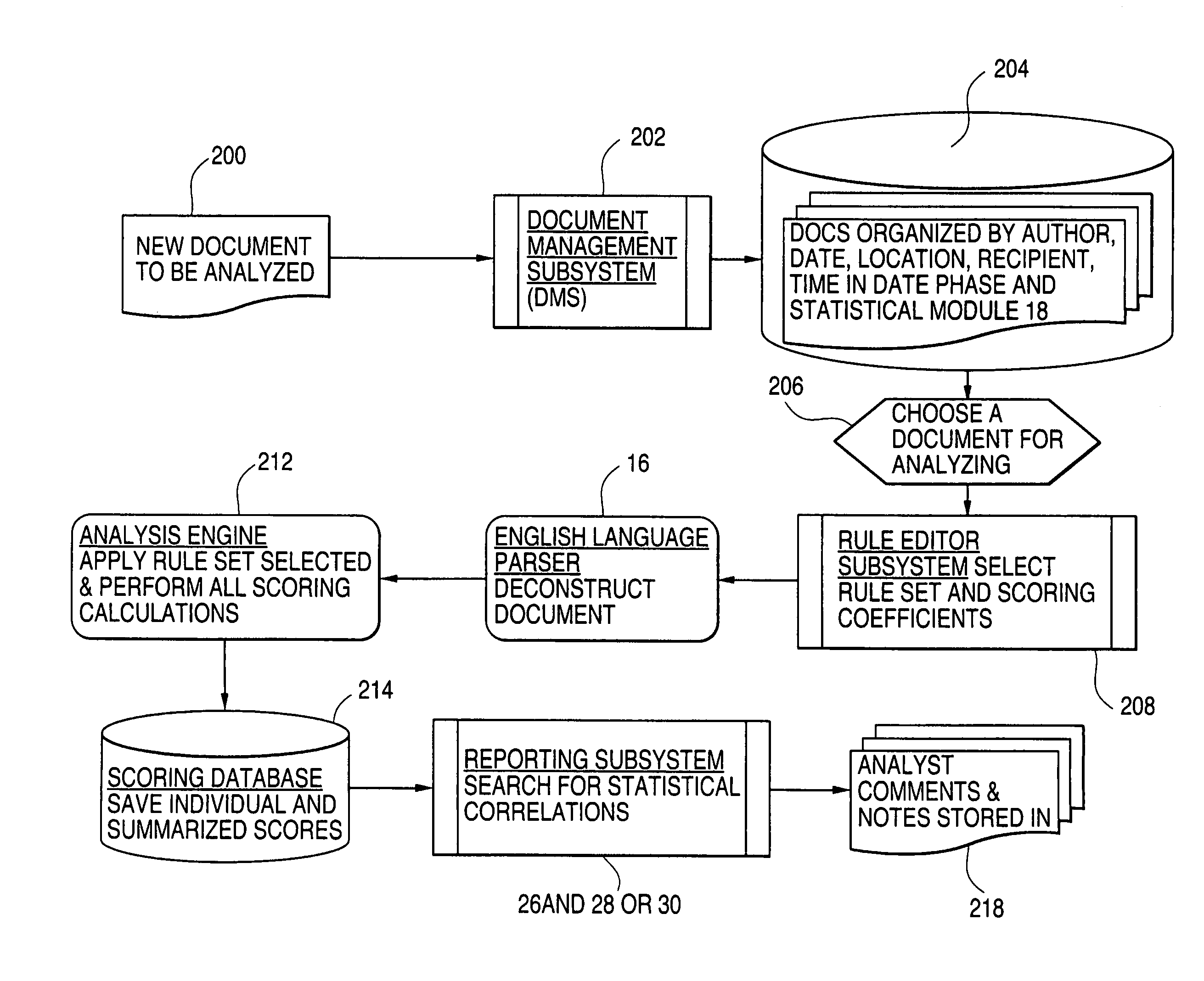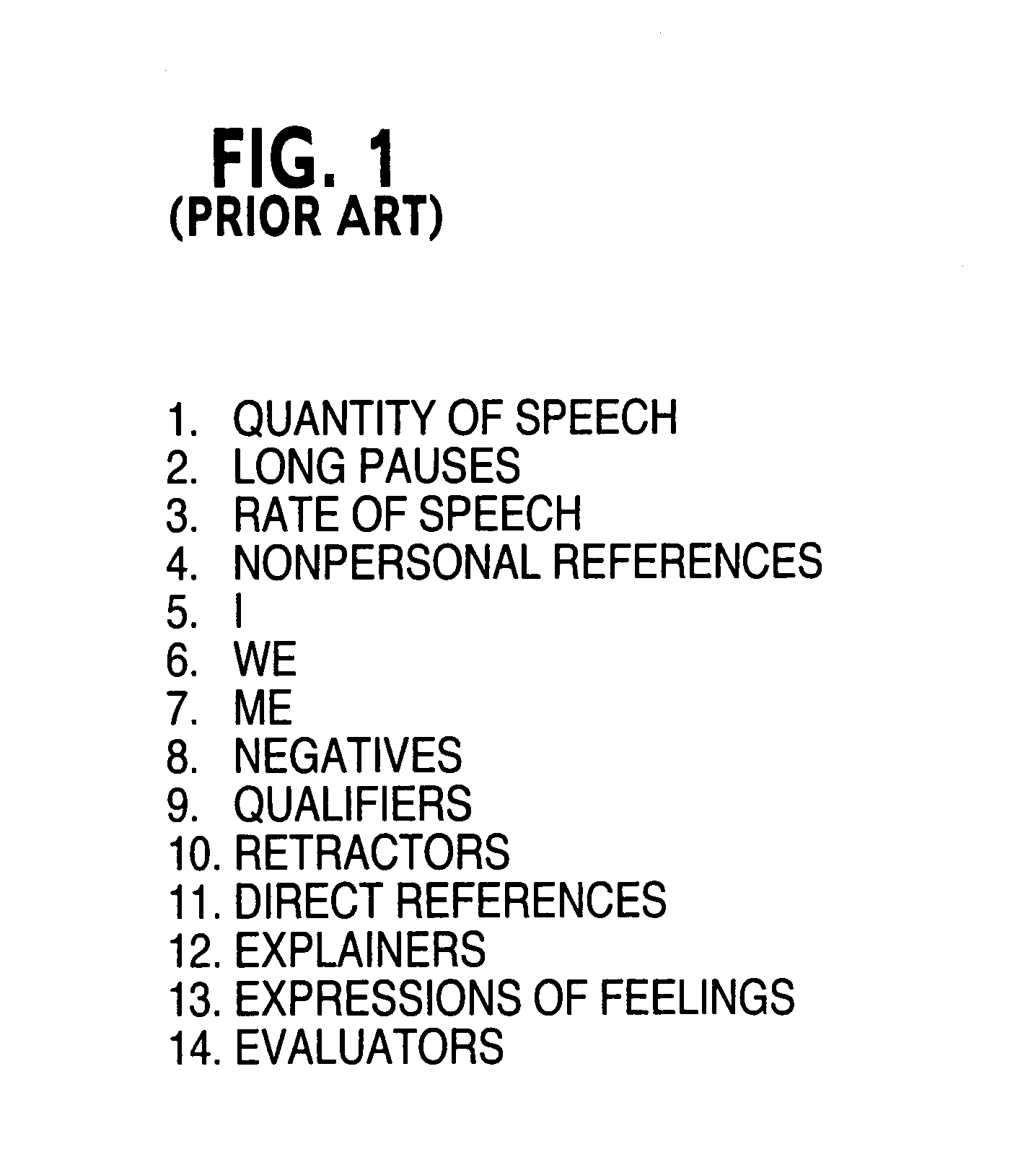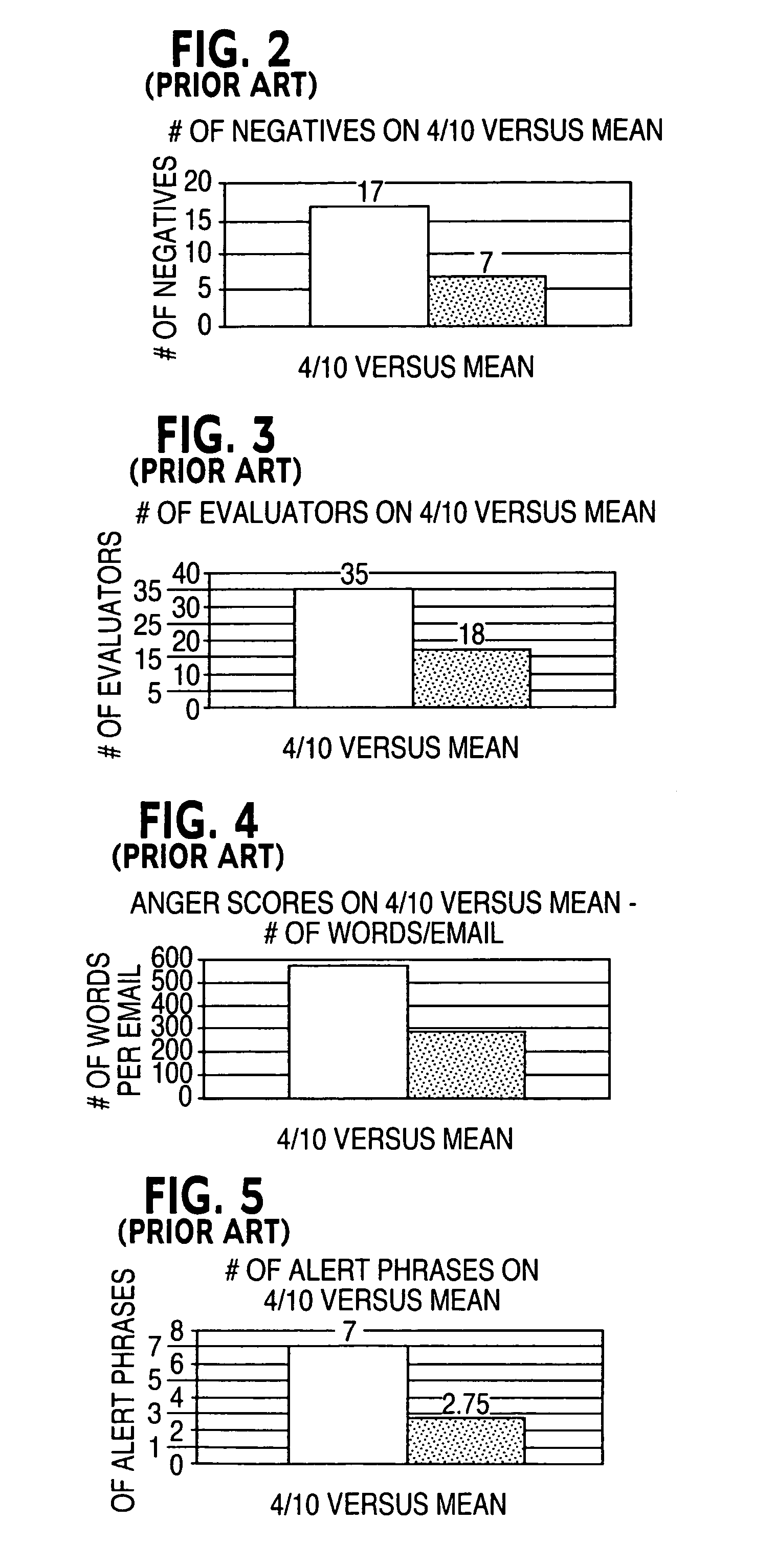System and method for computer analysis of computer generated communications to produce indications and warning of dangerous behavior
a computer generated communication and computer analysis technology, applied in the field of computer generated communication systems and methods, can solve the problems of computer generated communications, inability to apply the system to the communications of normal employees in the work place, and the complexity of coding required to produce the measures of many characteristics, so as to reduce the impact of disruptive or dangerous situations
- Summary
- Abstract
- Description
- Claims
- Application Information
AI Technical Summary
Benefits of technology
Problems solved by technology
Method used
Image
Examples
case example
A Case Example
[0196]This case below illustrates operation of the invention, including how the output communication appears and is applied. At the outset, emails or other computerized communications are scanned for the selected words and values utilized in the three categories 20, 22 and 24 of algorithms—psychological profiling, key words and message characteristics as described above. These values are preferably assembled on a single spreadsheet for each email produced by a subject. As additional emails are collected, an additional spreadsheet is constructed containing mean scores and other values for all collected emails for a subject. The analytical algorithms are then applied to the data in the spreadsheets to construct critical scores.
[0197]For some of the more advanced psychological profiling variables it is often desirable to apply a correction factor that accounts for the difference in the number of words per computer generated communication. For example, if there is interest...
PUM
 Login to View More
Login to View More Abstract
Description
Claims
Application Information
 Login to View More
Login to View More - R&D
- Intellectual Property
- Life Sciences
- Materials
- Tech Scout
- Unparalleled Data Quality
- Higher Quality Content
- 60% Fewer Hallucinations
Browse by: Latest US Patents, China's latest patents, Technical Efficacy Thesaurus, Application Domain, Technology Topic, Popular Technical Reports.
© 2025 PatSnap. All rights reserved.Legal|Privacy policy|Modern Slavery Act Transparency Statement|Sitemap|About US| Contact US: help@patsnap.com



